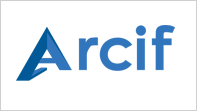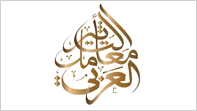A cognitive behavioral counseling therapeutic program to reduce aggressive traits among juveniles delinquent (Clinical case study)
DOI:
https://doi.org/10.51984/johs.v22i2.2476Keywords:
Juvenile delinquents, Cognitive-behavioral counseling program, Aggressive traits, Behavioral disorderAbstract
The current research aims to reduce the traits of aggression among juvenile delinquents by revealing the effectiveness of a cognitive - behavioural counselling treatment program. The change that occurs in the case is due to the effectiveness of the program used. In addition, the researcher adopted the descriptive analytical approach to describe the clinical changes that occur on the case. The case was a delinquent male, aged 15 years, studying in the ninth grade of basic education, in good health and not suffering from any sensory, motor or mental disability and at a somewhat low economic level, living with his parents, the mother is a housewife. The researcher also relied to collect data on tools such as interview and observation of all kinds, self-reports and reports of others about the situation, grade scales, write-off lists, monitoring tables, daily records and psychological scales, in addition to the therapeutic counselling program (prepared by the researcher). The most important results of the research were an acceptable decrease in the severity of behaviours, the targeted modification and the accompanying emotions, and the child became more interactive with others in the social and school environment. An improvement in his relationship with his brothers and colleagues was noted and a good decrease in the traits of aggressive behaviour, this improvement continued for more than a month, This improvement continued for more than a month.
Downloads
Downloads
Published
Issue
Section
Categories
License
Journal of Humanities Policy on Intellectual Property and Plagiarism
1. Commitment to Intellectual Property and Ethics
The Journal of Humanities (JOHS) is fully committed to respecting intellectual property rights and aims to protect the originality and authentic work of authors who submit their manuscripts for publication. The journal takes a firm stand against articles that contain any form of plagiarism and emphasizes the need for all researchers to adhere to the highest ethical standards in scientific research.
2. Anti-Plagiarism Policy
The journal considers plagiarism a serious violation of academic ethics. Therefore, authors must ensure that their work is original and not plagiarized, and that any use of external sources is properly cited and documented according to correct academic standards.
-
Actions Taken: In the event that any plagiarism or academic theft is discovered in a submitted article, the editorial board will contact the author to request a formal explanation within a maximum period of two weeks from the date of notification.
-
Investigation and Decision: After receiving the explanation, the article will be referred to the journal's specialized committees, which will investigate the matter and take the necessary measures, which may include the permanent rejection of the article and the imposition of disciplinary actions.
3. Publication License and Author Rights
The journal adopts the Creative Commons license type Attribution-NonCommercial-NoDerivs 4.0 International (CC BY-NC-ND 4.0), which allows for the following:
-
Attribution: Users are entitled to cite the content published in the journal and use it in their work, provided that the original source and author are clearly credited.
-
Non-Commercial: The published content may not be used for any commercial purpose.
-
NoDerivs: It is not permitted to make any modifications, distortions, or to build derivative works from the published content.
Under this license, authors are required to complete an exclusive license agreement for the journal. Authors retain the rights to their research data and may reuse and share their work for scientific purposes with proper citation.







